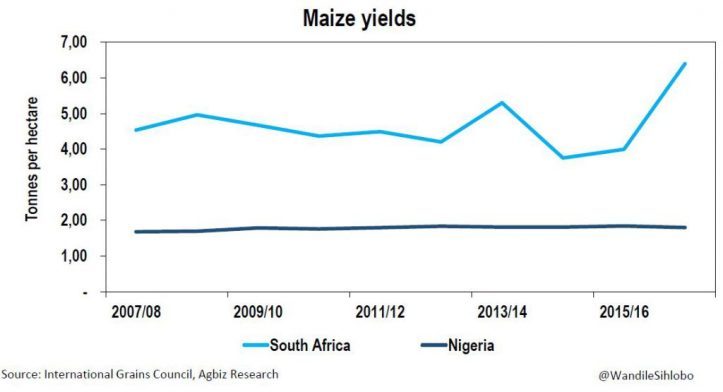By Wandile Sihlobo :
Some African countries are still sceptical about the health risks associated with Genetically Modified (GM) crops. However, farmers in the southern tip of the continent, South Africa, have long been planting GM crops for over a decade and there seem to be minimal health risks, but rather greater benefits in terms of yields and savings on inputs cost.
Hence, it is not surprising that South Africa produced 26% of Sub-Saharan maize in the 2016/17 production season while utilising a relatively small area of 2.6 million hectares. In contrast, countries such as Nigeria planted 4 million hectares in the 2016/17 production season but only harvested 7.2 million tonnes of maize.
GM maize crops were introduced in South Africa in the 2001/2002 season. Before the introduction of GM maize, average yields in South Africa were around 2.4 tonnes per hectare, but these increased to around 6.4 tonnes per hectare in the 2016/2017 production year, which is the highest average national commercial yield on the African continent to date (see featured image). Meanwhile, sub-Saharan African average maize yields have remained at levels below 2 tonnes per hectare.
A recent study by agricultural economists Jayson Lusk, Jesse Tack and Nathan Hendricks shows that the adoption of GM maize has led to a 17% increase in yields across the globe. Moreover, the study shows that there are several other benefits from the adoption of GM crops beyond yield increases.
These non-yield benefits come in the form of labour savings, reduced insecticide use, and improved weed and pest control which has facilitated the ability to adopt low and no-till production methods and utilise higher planting densities.








